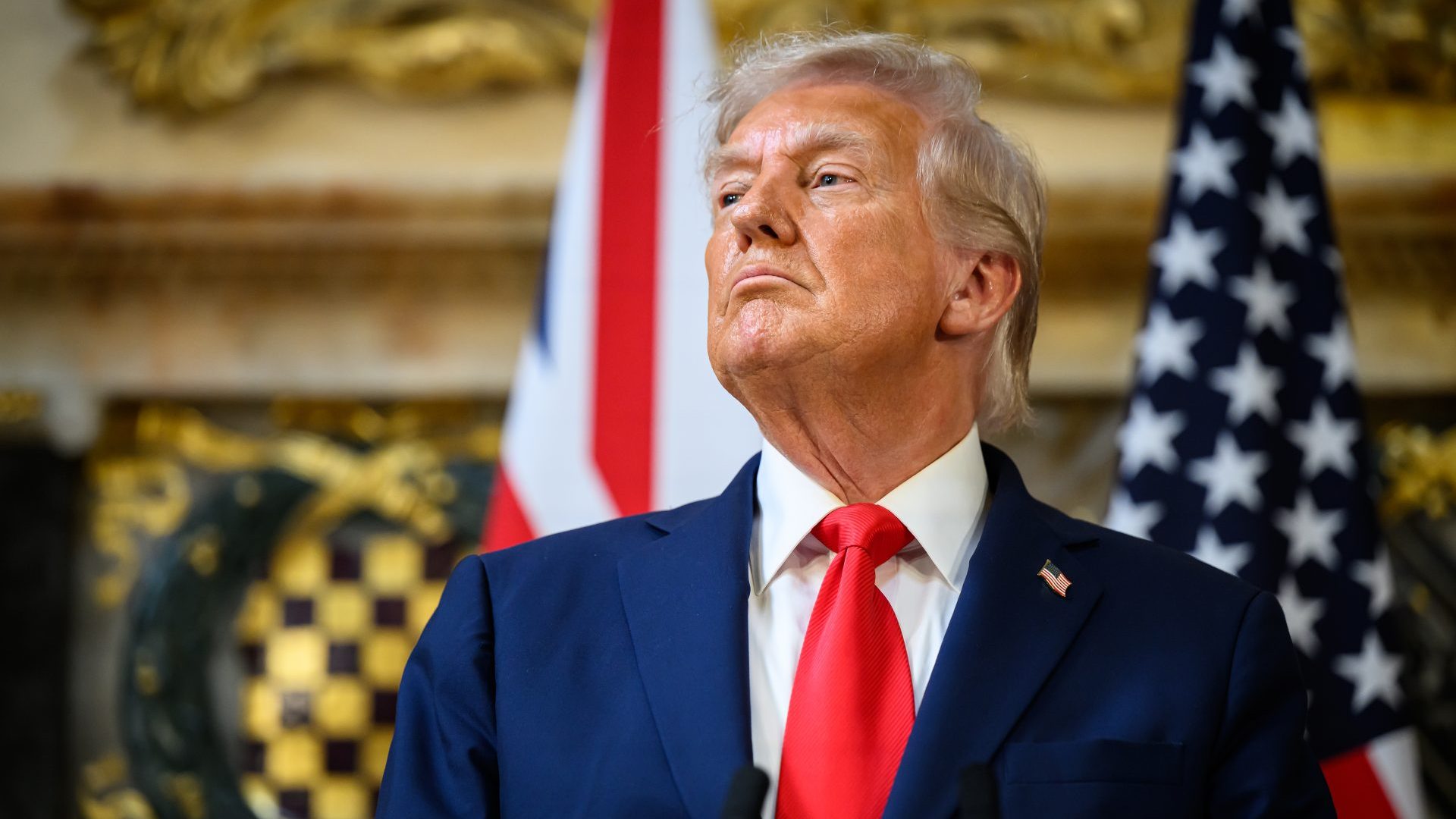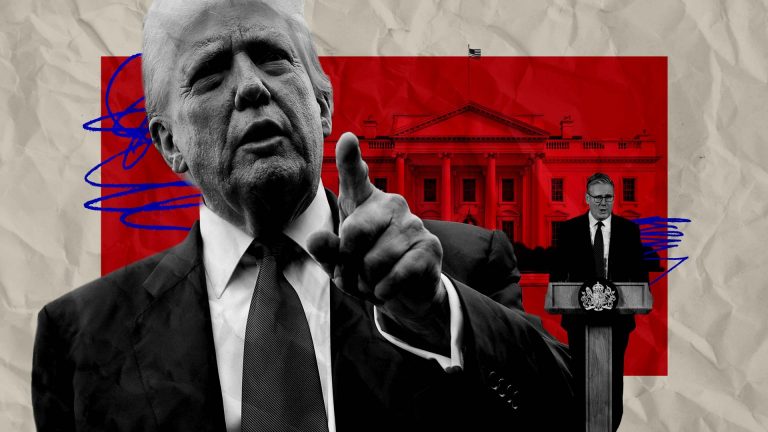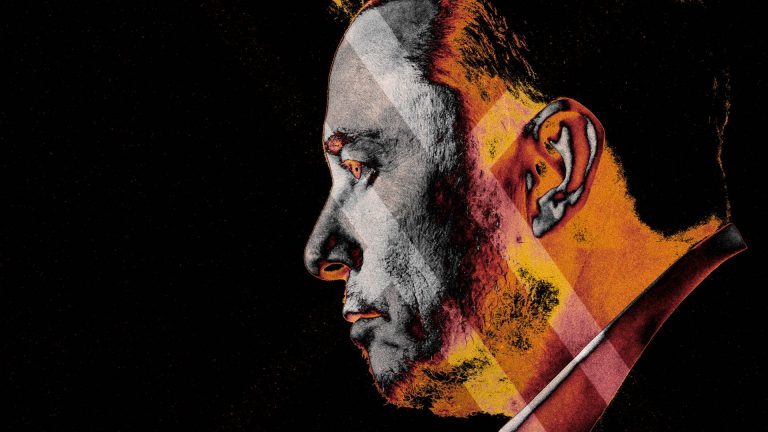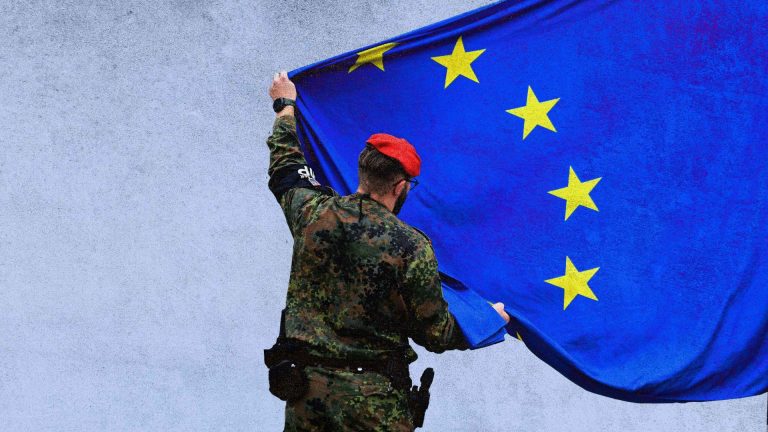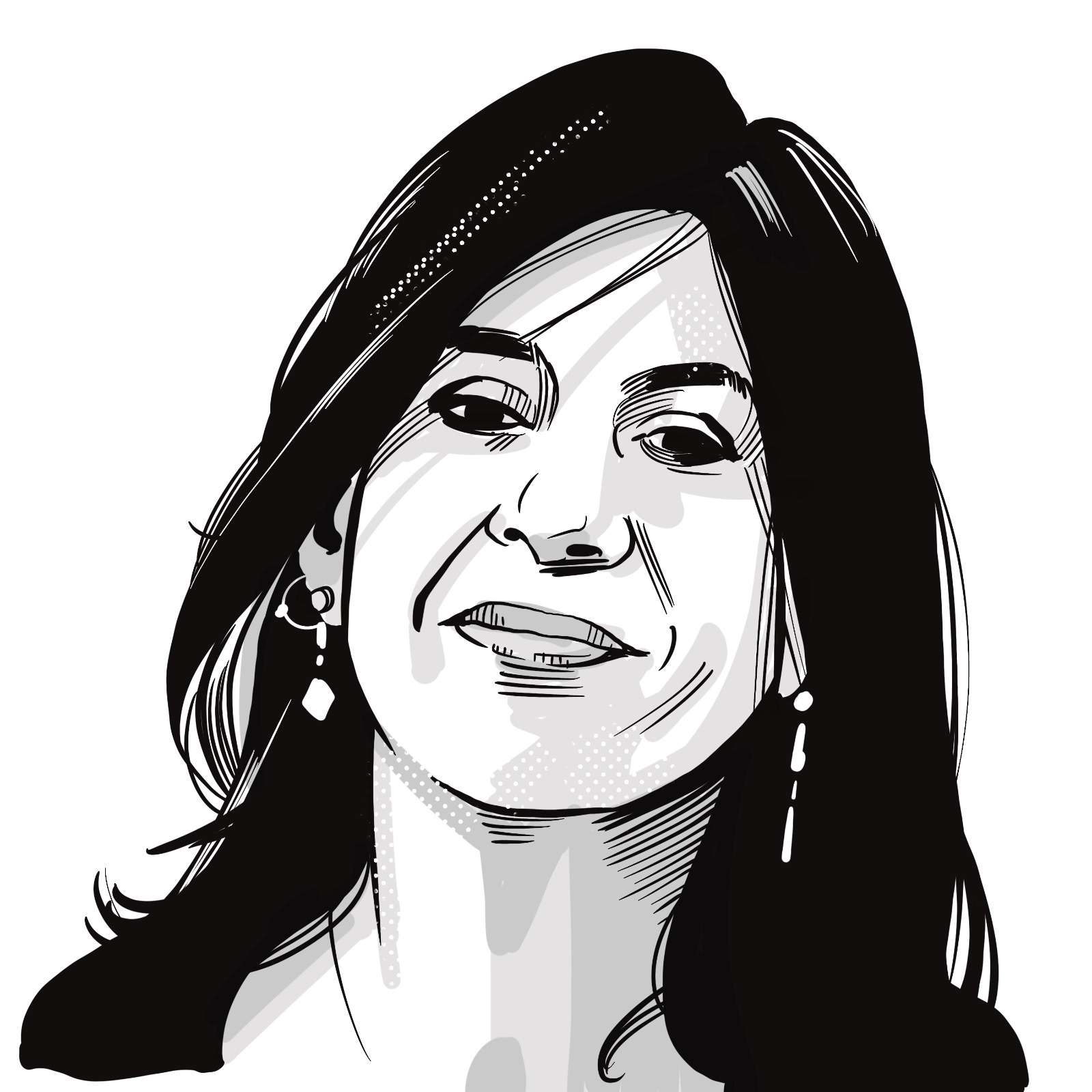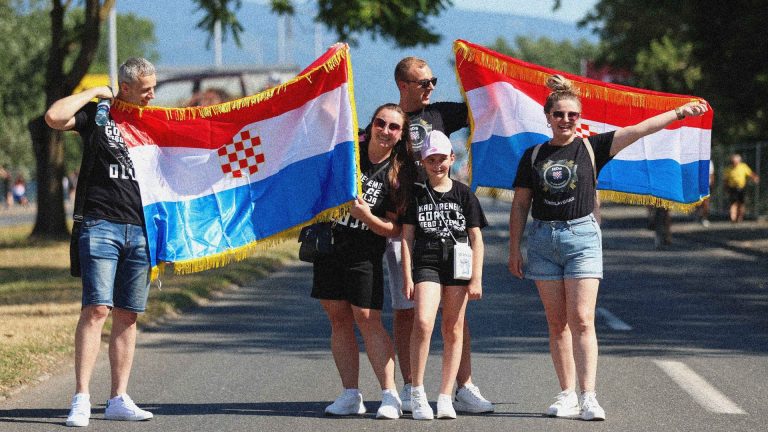In 1938 as Britain’s ageing Tory Prime Minister, Neville Chamberlain, was in Munich preparing to hand over Czechoslovakia to the German dictator in Berlin, the Jan Masaryk, the witty, caustic Czech ambassador in London (later his country’ s wartime foreign minister in exile) was asked what kind of support London was giving the Czech efforts to avoid being incorporated into Germany.
“It’s like an old man’s erection”, he replied. Today the people of Ukraine must feel the same about the efforts of president Trump and European leaders to save their nation from being annexed by Russia.
Once again in London, Trump showed that he was indifferent – indeed borderline contemptuous – of British efforts to stop the drawn-out Washington betrayal of Ukraine.
In his presidential campaign last year, Trump said that, as president, he would end the war between Ukraine and Russia in 24 hours, a claim he repeated no fewer than 53 times.
He can probably achieve that aim and in the process win the Nobel Peace Prize he so openly craves. But to do so, he must make clear to Vladimir Putin that his illegal invasion of Ukraine, the endless deaths of innocent civilian women and children caused by his missiles and drones, must be stopped, and the 20,000 kidnapped Ukrainian children taken by Russia must now be returned.
Trump so far has refused to tell Putin that this is what the US wants and that he will take all necessary economic, political, diplomatic and military steps to make it happen. This would not involve the US declaring war on Russia, but giving Ukraine the means to take the fight to Russia. It also means gaining assistance from European Nato allies.
At the news conference after the Trump-Starmer meeting, the British PM said that there needs to be extra pressure put on Putin, and adding it’s only when Trump puts pressure on Putin that he’s “shown any inclination to move”.
Macron, Starmer, and other European leaders who have put together the so-called “coalition of the willing” to support Ukraine need to come clean. Trump is acting as Putin’s man in the discussions on Ukraine. Trump’s epigones, like vice president Vance or his former consiglieres Elon Musk or Steve Bannon, have nothing but contempt for Europe.
And so it is time for Kyiv’s allies in Europe still hoping Trump will challenge Putin to accept they are whistling in the wind. It is better to let Trump be Trump and accept that Europe must now show leadership.
That needs a clear strategic analysis. An endless procession of retired generals, ambassadors and MI6 chiefs occupy all the space on the BBC, Times Radio, or C4 News. These talking heads tend to have three things in common: they don’t speak or read Russian; they have always considered Washington the only point of reference for international policy; and they all look with condescension, if not contempt, on European military or geopolitical capabilities. They see the calls for more defence spending as a means to restore the UK’s military might after 20 years of Britain’s army, navy, and defence industries being reduced to third class status.
They do not seem to understand that Putin needs his war in Ukraine to maintain his hold over Russia. Just as Stalin promoted military leaders like Zhukov, Konev or Rokossovsky to command armies to defeat the Germans, so too Putin is quietly retiring the old guard generals. He has also charged 122 business leaders with corruption – arguably the Kremlin leader is now much tougher on corruption than Zelensky as Ukrainian oligarchs have been allowed to live with their military age sons in comfort outside Ukraine.
Suggested Reading
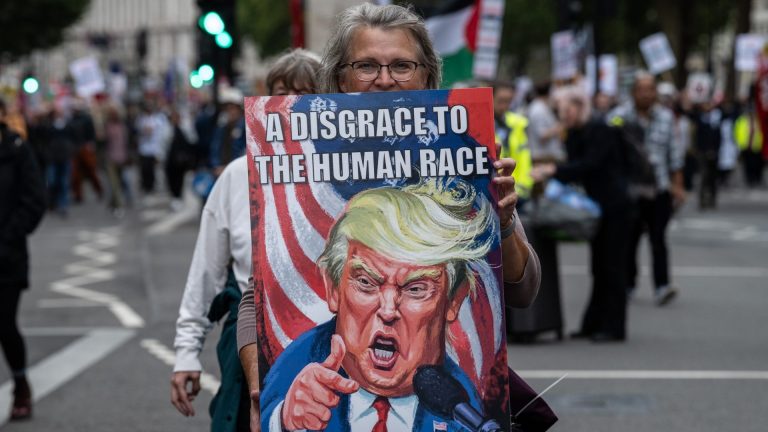
At the anti-Trump rally in Westminster
US president Joe Biden and UK Prime Minister Boris Johnson offered pro-Ukrainian rhetoric and photo-calls with Zelensky after Putin’s invasion early in 2022. But it quickly became clear that, while they were willing to fight to the last Ukrainian and obtain condemnations from the UN and other international bodies in the global north, neither Washington, London or anyone else was willing to make a real military commitment to Ukraine.
Churchill famously appealed to Roosevelt early in 1941: “Give us the tools and we will finish the job”. America was hemmed in by laws and a congress that looked askance at foreign entanglements. But Roosevelt worked his way around these obstacles to send Britain the means to take the battle to the invader.
Today there is no Churchill to lead Europe and to fill the void left by Trump. Macron, followed by Starmer and now Merz have pledged to raise defence spending and have organised conferences of leaders who have all confirmed that they support Ukraine.
But after Putin’s recent drone incursion into Poland’s sovereign airspace, France sent three Rafales and the Royal Air Force promised warplanes.
Poland meanwhile has not helped herself by electing a nationalist, Eurosceptic president. Warsaw has also closed its borders with Germany, becaue Moscow and Belarus have been pushing migrants across borders into Poland en route to the richer EU nations, in an attempt to destabilise them.
Britain is gripped by the idea that switching government support to defence will help growth. Yet the main beneficiary of more defence expenditure will be the US. Europe will fly US-made F35s. The UK Defence Ministry has just signed a £750 million contract with Palantir, the controversial US AI firm. It seems impossible to find British or European firms to do AI defence work.
But, perhaps most worryingly, the rise of nationalist far-right parties, now with growing support, are not interested in seeing Ukraine prevail over Russia. Nigel Farage, Marine Le Pen, Matteo Salvini, the the AfD’s Alice Weidel, Viktor Orban, Robert Fico have all expressed support for Putin’s vision of a white, nationalist, ultra-Christian Russia. Many of them have taken money from the Putin network in Russia.
Early in 2024, Emmanuel Macron proposed some kind of intervention force from Europe to station troops in Ukraine – not to enter into combat with Russia – but carry out non-frontline duties. London pooh-pooed the idea but when Labour won and Starmer became prime minister, he took over the Macron proposal rebaptising it the “Coalition of the Willing”.
This now includes 31 nations including, bizarrely, Turkey whose autocratic leader Erdogan refuses to impose sanctions on Russia. Erdogan has now detained or had dismissed as elected city and regional leaders top figures in the main opposition party CHP, with the same gusto with which Putin arrested and disposed of his own opponents.
But there is no cross-party support in key Nato nations like Germany and Spain to send soldiers to Ukraine. Trump is completely indifferent to the idea, so US air surveillance and satellite intelligence will not be available.
Increasingly the “Coalition of the Willing” looks flimsy. There is little public support especially in France and Britain. There is more realism in Berlin where Stefan Meister of DGAP, the German equivalent of Chatham House, who speaks Russian and has worked in former USSR capitalis, says that:
“The Alaska summit between Donald Trump and Vladimir Putin has not brought Ukraine closer to peace. Worse, it legitimized Putin’s war policy and brought him back onto the international diplomatic stage. Unless European Nato members can make a greater contribution to supplying weapons and impacting the military balance at the front line, including through security guarantees, they will be unable to impact the outcome of such negotiations.”
This is the brutal truth. Britain building frigates for Spain or submarines for Australia is all very well, but is not even a flea bite on Putin’s cynical carapace. He is quite happy with how the war is going. He has support in the global south which America, the UK and EU have stupidly ignored.
The only language Putin will understand is defeat on the battlefield. The new German Chancellor Friedrich Merz was elected on a 29% vote earlier this year promising a definitive break with the support his predecessors Angela Merkel and Gerhard Schröder gave Putin.
They supported German industry becoming dependent on Russian oil, turned a blind eye to Putin’s murderous brutality in Chechnya and, like other European leaders including David Cameron and Nicholas Sarkozy and ineffectual EU presidents, they took no action when Putin invaded Georgia in 2008 and Crimea in 2014.
But Merz has turned out to be a very cautious chancellor, unwilling to give Ukraine the support it needs, notably in terms of sending Germany’s 500km range Taurus missile, which would allow Kyiv to hit launch sites deep inside Russia.
Shamefully the German social democrats as well as the rising far right AfD – openly called “NeoNazis” by many Germans – are seeking to block the use of Taurus missiles. The German Christian Democrats’ post-1945 European policy is built on “Nie weider Krieg” – No More War.
But as with the failure of England and France to stand up to a dictator in 1938, the old man’s erection syndrome rules in most of the governments in Europe today.
Denis MacShane is the former Minister of Europe

